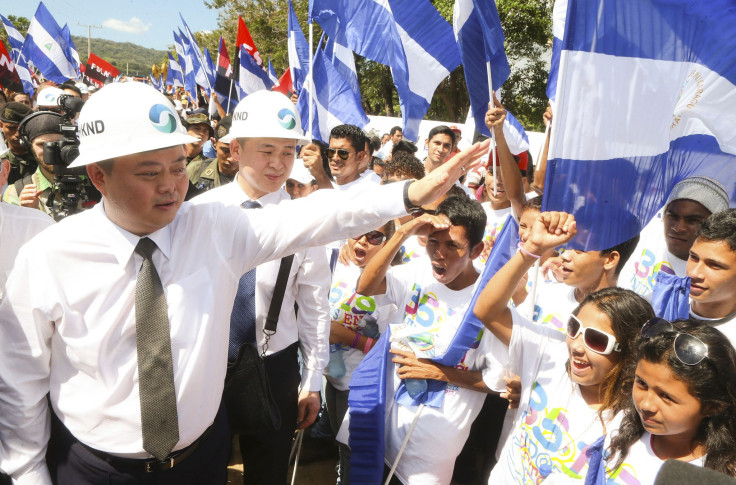Nicaragua Canal Project: Environmental Study Delivered But Details Remain Under Wraps

Nicaraguan officials this week received a long-awaited environmental impact assessment of the controversial $50 billion interoceanic canal, checking off a major to-do item for the ambitious Chinese-backed project. Authorities said the study deemed the project “viable” but didn’t release any additional details of the assessment.
The general manager of HKND Group, the Hong Kong company that won the concession to build and manage the project, delivered the 14-volume report Sunday evening to the head of the Nicaraguan canal authority, news agency Agence France-Presse reported. British consulting firm Environmental Resources Management was in charge of the environmental impact and feasibility study, which it said took two years to complete.
The study contains a “series of conclusions, but also recommendations to reduce the environmental and social impact” so that the project can have a positive result, said Telémaco Talavera, the spokesman for the Nicaraguan Grand Canal Commission. He added that the assessment said the project “was viable” and supported the proposed 172-mile route.
But details of the report remain hidden from the public for now. The study goes next to the Environmental Ministry for analysis and review and will likely be released to the public in July, Talavera said.
The canal project has provoked fierce criticism from environmentalists and landowners along the proposed route, who fear the canal will displace communities and bring serious risks to Lake Nicaragua, the country’s largest freshwater source. About 65 miles of the proposed route cut through the lake.
Critics also voice suspicion about lack of transparency around the project, as Nicaraguan officials gave the canal concession to HKND Group without opening up the bidding to other companies. In late 2014 and early 2015, thousands of protesters held demonstrations in Managua and towns along the proposed route, as workers began preliminary roadway construction for the project.
© Copyright IBTimes 2024. All rights reserved.





















